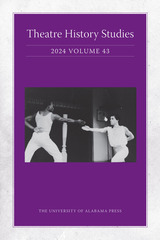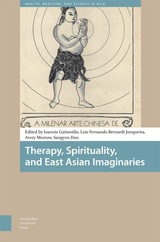24 start with A start with A
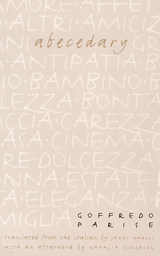

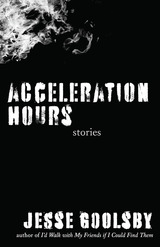
2020 Foreword INDIE awards, longlist
From the author of the critically-acclaimed novel, I’d Walk with My Friends If I Could Find Them, Jesse Goolsby’s Acceleration Hours is a haunting collection of narratives about families, life, and loss during America’s twenty-first-century forever wars. Set across the mountain west of the United States, these fierce, original, and compelling stories illuminate the personal search for human connection and intimacy. From a stepfather’s grief to an AWOL soldier and her journey of reconciliation to a meditation on children, violence, and hope, Acceleration Hours is an intense and necessary portrayal of the many voices living in a time of perpetual war.
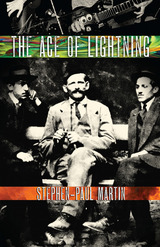
Stephen-Paul Martin’s The Ace of Lightning is a series of interconnected stories focused on a turning point in Western history: the assassination in Sarajevo of Archduke Franz Ferdinand of Austria which triggered World War I, and the mysterious circumstances that led Gavrilo Princip to shoot and kill the heir apparent to one of Europe’s most powerful empires.
Far from being a conventional work of historical fiction, Martin’s collection asks readers to think about what truly constitutes history. What would the past look like if history was written under the influence of Mad Magazine and The Twilight Zone? What happens when the assassination in Sarajevo becomes “the assassination in Sarajevo,” when Gavrilo Princip becomes “Gavrilo Princip,” when the past and the present shape a textual future that looks suspiciously like a past that never was and a present that never is?

Many of the narratives center on the melancholic dislocations of Midwestern men—dislocations provoked by forces ranging from the unknown terrain of travel to emerging romantic relationships. Fink's gift for voice and keen observation of place display the male psyche against unfamiliar backgrounds in high relief. These quiet, often introspective stories pack an outsized punch.
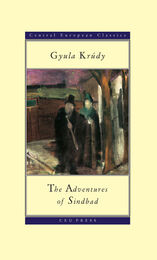
In these marvellously written tales, Sindbad, a voyager in the realms of memory and imagination, travels through the centuries in pursuit of an ideal of love that is directed as much at the feminine essence as at his individual lovers. He is by nature a melancholy sensualist, but whether the women he seduces and loves are projections of his desire, or he of theirs, is a moot question.
These short stories flow without a strict narrative framework Sindbad journeys between the past and the present and is merely a ghost in many of his adventures. Although Sindbad can move through time, it is time that proves his chief enemy, and youth that remains his real love. This deeply autumnal book, full of resonances and associations, is an erotic elegy to the dying Habsburg Empire.
The stories are taken from the omnibus triple-volume Hungarian edition published as The Three Books of Sindbad in Hungary in 1944, which includes The Travels of Sindbad (1912), The Resurrection of Sindbad (1916), and The Youth and Grief of Sindbad (1917).
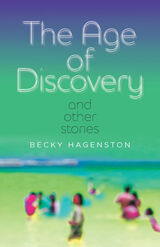
“These ingenious stories are so funny and sparkling and slyly inventive that their pain catches you by surprise, like a sunburn after a day at the beach.”—Eric Puchner
Winner, 2022 Mississippi Institute for Arts and Letters Prize for Best Fiction
In Becky Hagenston’s fourth collection, the real and the fantastic collide in stories that span from Mississippi to Europe, and from the recent past to the near future. The characters are sex-toy sellers, internet trolls, parents, students, and babysitters—all trying to make sense of a world where nothing is quite what it appears to be. A service robot makes increasingly disturbing requests. A middle school teacher is accused of witchcraft—and realizes the accusations might be true. Two college students devise a way to avoid getting hit on in bars. A baker finds bizarre anomalies in his sourdough. A librarian follows her dead ex-husband through the Atlanta airport. In these stories, men and women confront grief, danger, loneliness, and sometimes—the strangest discovery of all—unexpected joy. Hagenston delivers a collection that is, at its weird and shining heart, about people discovering what—for better or worse—they are capable of.
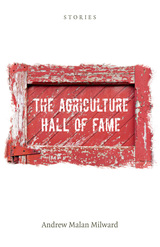
Presented in a triptych, the stories in Milward's debut collection range across a varied terrain, from tumbledown rural barns to modern urban hospitals, revealing the secrets contained therein.
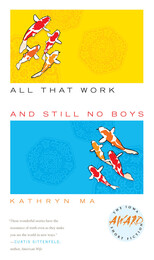
How do we survive our family, stay bound to our community, and keep from losing ourselves? In All That Work and Still No Boys, Kathryn Ma exposes the deepest fears and longings that we mask in family life and observes the long shadows cast by history and displacement.
Here are ten stories that wound and satisfy in equal measure. Ma probes the immigrant experience, most particularly among northern California’s Chinese Americans, illuminating for us the confounding nature of duty, transformation, and loss. A boy exposed to racial hatred finds out the true difference between his mother and his father. Two old rivals briefly lay down their weapons, but loneliness and despair won’t let them forget the past. A young Beijing tour guide with a terrible family secret must take an adopted Chinese girl and her American family to visit an orphanage. And in the prize-winning title story, a mother refuses to let her son save her life, insisting instead on a sacrifice by her daughter.
Intimate in detail and universal in theme, these stories give us the compelling voice of an exciting new author whose intelligence, insight, and wit impart a sense of grace to the bitter resentments and enduring ties that comprise family love. Even through the tensions Ma creates so deftly, the peace and security that come from building and belonging to one’s own community shine forth.
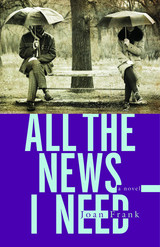
Because of course she feels what he feels. . . . People their age natter along not copping to it but the awareness is billboarded all over their faces—a wavering, a hesitation, even those who used to crow and jab the air. The tablecloth of certainty, with all its sparkly settings, has been yanked, and not artfully. It's why people drink.
All The News I Need probes the modern American response to inevitable, ancient riddles—of love and sex and mortality.
Frances Ferguson is a lonely, sharp-tongued widow who lives in the wine country. Oliver Gaffney is a painfully shy gay man who guards a secret and lives out equally lonely days in San Francisco. Friends by default, Fran and Ollie nurse the deep anomie of loss and the creeping, animal betrayal of aging. Each loves routine but is anxious that life might be passing by. To crack open this stalemate, Fran insists the two travel together to Paris. The aftermath of their funny, bittersweet journey suggests those small changes, within our reach, that may help us save ourselves—somewhere toward the end.
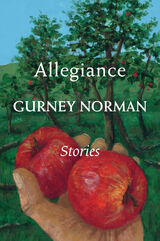
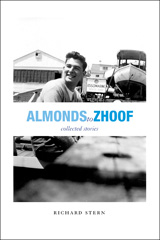
Honorable Mention, 2006 The Society of Midland Authors Adult Fiction Award
For decades, Richard Stern has been acclaimed as one of the American masters of the short story. Almonds to Zhoof: Collected Stories brings together for the first time forty-nine of Stern's best short works and novellas-from "Dr. Cahn's Visit," which The New Republic praised as "the very best very short story in the English language," to classics like "Teeth" and "Wanderers."
Stern's stories-witty, moving, always full of energy-never sacrifice storytelling to mere elegance or wandering wisdom. This collection demonstrates Stern's astonishing ability to portray people from all walks of life, their flawed relationships to ideas, their sometimes bizarre relationships with lovers and friends, their often brilliant, if skewed, appraisals of themselves. The stories always reflect an abiding compassion for his characters whoever they are and whatever their origins. All exist within the politics and workplaces and bedrooms of the real world. All are incorrigibly human.
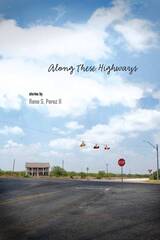
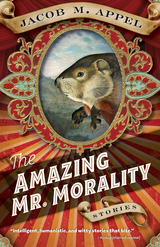
The Amazing Mr. Morality features tenacious men and women whose determination to buck middle-class social convention draws them toward unforeseen challenges. A failed television producer insists upon having a woodchuck relocated from his lawn, only to receive desperate letters in which the woodchuck begs to return. An overconfident ne’er-do-well obtains a lucrative lecture invitation intended for a renowned ornithologist and decides to deliver the speech himself. An innocuous dispute over whether to rename a local street opens up racial fault lines that prove deadly.
The collection concludes with the title novella in which two unscrupulous ethicists, writing rival newspaper columns, seek to unseat each other by addressing questions such as: If you’re going to commit a murder, is it worse to kill when the victim is sleeping or awake?
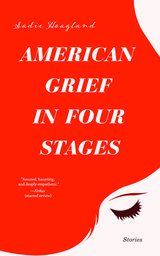
American Grief in Four Stages is a collection of stories that imagines trauma as a space in which language fails us and narrative escapes us. These stories play with form and explore the impossibility of elegy and the inability of our culture to communicate grief, or sympathy, outside of cliché.
One narrator, for example, tries to understand her brother’s suicide by excavating his use of idioms. Other stories construe grief and trauma in much subtler ways—the passing of an era or of a daughter’s childhood, the seduction of a neighbor, the inability to have children. From a dinner party with Aztecs to an elderly shut-in’s recollection of her role in the Salem witch trials, these are stories that defy expectations and enrich the imagination. As a whole, this collection asks the reader to envisage the ways in which we suffer as both unbearably painful and unbearably American.
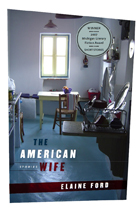
Of Elaine Ford’s novel, Missed Connections, the Washington Post wrote that it is a work “of small episodes, of precise sentences, of unusual clarity.” That same clarity proves an unsettling force in Ford’s stories, where precision of prose often belies uncertainties hidden beneath. In the title piece, an American woman in England, embroiled in a relationship doomed to fail, discovers how little she understands about her own desires and impulses. In another story, another American wife, abandoned in Greece by her archaeologist husband, struggles to solve a crime no one else believes to have been committed.
Throughout her stories Ford touches on the mysteries that make up our lives. Each story in itself is a masterpiece of such detail and power as to transform the way we see the world.

In Beth Helms's American Wives, winner of the 2003 Iowa Short Fiction Award, the women inhabit familiar roles—military wife, wealthy widow, devoted mother, lifetime companion. Yet despite their ordinary appearances, these women have deep secrets hidden beneath the thin veneer of duty, devotion, and privilege.
Set in both the United States and abroad, American Wives is about hope and disappointment, failure and resignation, desire and, occasionally, joy. A military wife abroad has a brief and totally unexpected sexual encounter; a wife watches as her husband, obsessed with the au-pair, has an affair instead with her best friend; a young woman finds herself destined to repeat the patterns of her mother's long-hidden infidelities. At the heart of each encounter is the overwhelming need to connect with others“whether they be lovers, spouses, friends, or family”while balancing personal desires. Too often, Helms's characters discover that being true to oneself means sacrificing the ones we love most.
As each woman seeks control of her life, we are reminded of the ultimate hope and possibility that can be found within our most intimate relationships. In subtle, yet convincing prose, Helms beautifully reveals the emotional depths that are reached in moments of true despair and longing.
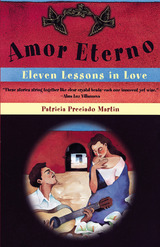
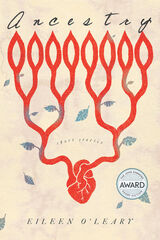

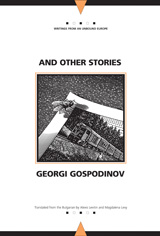
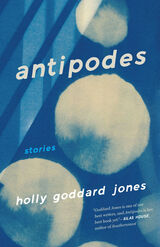
A harried and depressed mother of three young children serves on a committee that watches over the bottomless sinkhole that has appeared in her Kentucky town. During COVID lockdown, a thirty-four-year-old gamer moves back home with his parents and is revisited by his long-forgotten childhood imaginary friend. A politician running for a state congressional seat and a young mother, who share the same set of fears about the future, cross paths but don’t fully understand one another. A woman attends a party at the home of a fellow church parishioner and discovers she is on the receiving end of a sales pitch for a doomsday prepper.
These stories and more contemplate our current reality with both frankness and hard-earned hopefulness, realism and fabulism, tackling parenthood, environment, and the absurd-but-unavoidable daily toil of worrying about mundane matters when we’ve entered “an era of unknowability, of persistent strangeness.”
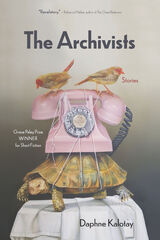
Longlisted for the 2024 Joyce Carol Oates Prize
Longlisted for the 2024 Massachusetts Book Award
The characters in The Archivists are everyday people, but when private losses or the shocks of history set their worlds reeling, they find connection and liberation in surprising, buoyant ways. Winner of the Grace Paley Prize for Short Fiction, this vibrant collection brings transcendence, wry humor, and a touch of the uncanny to life’s absurdities and catastrophes—whether the 2008 economic crash, fallout after the 2016 presidential election, gentrification, pandemic lockdown, illness, or the intergenerational impacts of the Holocaust and Communist occupation of Eastern Europe.
A hardheaded realist is confronted by both her mortality and a would-be wizard. A thirteen-year-old girl in 1950s Toronto infiltrates the ranks of Bell Canada. A ninety-nine-year-old woman appears to be invincible. A group hikes in Germany, and a solitary woman is pursued on a walk in New Mexico. These deeply moving stories ingeniously consider issues of identity, history, and memory and our shared search for meaning in an off-kilter world.
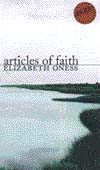
In her award-winning collection, Elizabeth Oness travels a vast emotional terrain, from the loss of innocence to sexual betrayal to the helplessness of parents before their children. In “Momentum, ” a woman carries the burden of a dead friend's secret for years until she finally decides to reveal it, only to discover that other, darker secrets still lie in wait. “Rufus” follows the quandary of a young man who is forced to choose between the affection of his girlfriend and his compassion for a homeless man who has taken up residence in his car.
Articles of Faith is a collection of stories about silence and the complications that arise when a silence is kept too long or suddenly broken. As one narrator relates, “I knew that life was full of these things which matter so enormously and make us what we are—but remain unsaid because to voice them does not make them go away, and instead shakes everything around us apart. ”
READERS
Browse our collection.
PUBLISHERS
See BiblioVault's publisher services.
STUDENT SERVICES
Files for college accessibility offices.
UChicago Accessibility Resources
home | accessibility | search | about | contact us
BiblioVault ® 2001 - 2025
The University of Chicago Press


